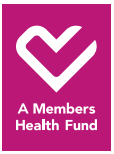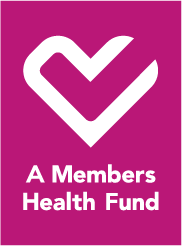Each year on June 5th, the world comes together to recognise World Environment Day, a global initiative dedicated to raising awareness about environmental issues and promoting action to protect our planet. While much of the conversation on this day usually focuses on sustainability and conservation, it’s important to also consider the direct impact our environment has on our health and wellbeing.
From the air we breathe to the water we drink, environmental factors play a significant role in shaping our overall health. Understanding these connections can help us make informed choices to protect both our personal wellbeing and the world around us.
Air Quality and Respiratory Health
Air pollution is a major environmental concern that affects millions of people worldwide. Did you know only seven countries worldwide meet the WHO dirty air guidelines? And we are lucky enough to live in one of them! However, this does not mean we are completely safe. There are still actions you can take to better your health. Poor air quality, often caused by emissions from vehicles, industrial activities, and wildfires, may lead to serious respiratory conditions such as asthma, chronic bronchitis, and even cardiovascular diseases.
What you can do:
• Reduce personal emissions by walking, cycling, or using public transport.
• Support policies and initiatives that promote clean energy solutions.
• Spend time in green spaces, which help filter pollutants and improve air quality.
Navy Health members who experience respiratory conditions may also benefit from one of our hospital cover options. If you require a hospital admission by a pulmonologist, private health insurance may help cover treatment for air quality-related health concerns, depending on your level of cover.
Water Quality and Hydration
It seems basic, but access to clean water is essential for maintaining good health. Contaminated water may lead to illnesses such as gastrointestinal infections and long-term conditions due to exposure to harmful chemicals. It’s not just about drinking water, it’s important to also consider the water you shower in, the water you swim in on a hot weekend and even the water used for irrigation and farming of your food.
What you can do:
• Use a reusable water bottle and consider filtering your drinking water when necessary.
• Reduce plastic waste to prevent water pollution.
• Stay informed about water safety in your community and consider working with local councils to aid in support.
Navy Health members on either Healthy Living Extras or Premium Extras can also access dietitian services through their Extras cover, which can support better hydration habits and nutrition choices.
Climate Change and Disease
Rising global temperatures and changing weather patterns are influencing the spread of infectious diseases. Warmer climates create favourable conditions for mosquitoes and other disease-carrying organisms, increasing the occurrence of conditions such as dengue fever and Lyme disease. Our climate on average has warmed by 1.51 ± 0.23 °C since national records began in 1910, with most warming occurring since 1950. Every decade since then has been warmer than the preceding one.
What you can do:
• Take precautions against insect bites when traveling or spending time outdoors.
• Use this climate change risk map to be informed on how your suburb may be impacted by climate change.
• Support environmental policies that address climate change to help limit the impact.
• Stay updated on health risks related to climate change.
Green Spaces and Mental Wellbeing
Spending time in nature has been shown to reduce stress, lower blood pressure, and improve mood. Urban green spaces, such as parks and gardens, provide not only cleaner air but also opportunities for physical activity and relaxation. We actually have a more detailed article discussing the connection between physical environment and wellbeing that you can read here.
What you can do:
• Incorporate outdoor activities like walking or jogging into your routine.
• Advocate for the preservation and creation of green spaces in your community.
• Try mindfulness or meditation exercises in natural outdoor settings.
• Try creating more green spaces inside your home.
Additionally, Navy Health Members on either Healthy Living Extras or Premium Extras can use their Extras cover for psychology, supporting emotional resilience and stress management.
Sustainable Living for a Healthier Future
Small, everyday choices can contribute to a healthier planet and, in turn, a healthier you. In general, there are a number of small actions you can make that can help reduce the impact of all the topics discussed above. Reducing waste, making eco-friendly purchasing decisions, and consuming sustainably sourced foods all play a role in supporting environmental and personal health. It can be overwhelming when it comes to improving the sustainability of the planet, so a good beginning point is to start small.
What you can do:
• Choose natural, non-toxic household and personal care products.
• Reduce food waste by planning meals and composting.
• Support businesses that prioritise sustainability.
This World Environment Day, take a moment to reflect on the connection between environmental health and personal wellbeing. By making small, conscious changes, we can create a healthier planet that, in return, supports our long-term health. After all, taking care of the environment means taking care of ourselves and future generations.
Let’s work together for a healthier world, one step at a time.
- Only seven countries worldwide meet WHO dirty air guidelines, study shows | Air pollution | The Guardian
- What are the WHO Air quality guidelines?
- Water Quality Home
- How Climate Change is increasing the spread of infectious diseases and invasive species | Climate Council
- Australian climate change observations | AdaptNSW
- Climate change
- Does spending time outdoors reduce stress? A review of real-time stress response to outdoor environments – ScienceDirect
- 3 ways getting outside into nature helps improve your health







